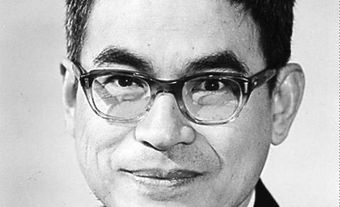Flor Marcelino, Filipino Canadian politician (born 5 October 1951 in Manila, Philippines). She became the first racialized woman to be elected as a member of the Legislative Assembly of Manitoba in 2007. She represented the ridings of Wellington and Logan. Marcelino also became the first racialized person to hold a cabinet position in the province from 2009 to April 2016. She acted as interim leader of the Manitoba New Democratic Party between May 2016 and September 2017.
Family and Education
Born Florfina de Guzman in 1951, Flor Marcelino was raised in poverty in the postwar Philippines. She was the eldest of six children. Her father was an ordained Christian minister who served in churches in Laguna, Manila and Quezon City. He died of a heart attack when she was only 10 years old. Her mother tried to do menial jobs like washing clothes and selling street food to sustain the family. However, she was unable to provide enough earnings. Flor’s younger siblings had to be given up to different foster care to meet their basic needs.
Flor’s precarious situation gave her the determination to study and work hard. She started working early to be able to support her mother and reunite with her siblings. She excelled in school and received scholarship grants. In 1970, she graduated cum laude from Luzonian University (now Manuel S. Enverga University Foundation) with a Bachelor of Arts in English. Later on, she also attended the Institute of Mass Communications at the University of the Philippines for her master’s degree in communications. However, she left before completing her thesis.
In 1977, she married Orlando Marcelino, a fine arts graduate. He was also an activist during a period of political unrest in the Philippines known as the First Quarter Storm. The two met while working at a public housing agency. They fled the country partly due to the repressive regime of then-President Ferdinand E. Marcos.
Immigration
Flor de Guzman-Marcelino, alongside her husband and first two of five children, came to Canada in June 1982. Her family was sponsored by her brother-in-law, who had moved to Canada two years earlier. (See Immigration to Canada.) They lived in Winnipeg’s Weston neighbourhood in the Tyndall Park constituency. She was first employed as a secretary at a garment factory. In 1986, she became a Canadian citizen.
From 1987 to 2006, she worked as an administrative assistant at Red River College. She also had a small business ― Padalahan, a remittance centre in Garden City Shopping Centre.
In 1996, she started publishing The Philippine Times, a free monthly community newspaper. She took the role of editor while her husband became the graphic designer. Their church minister, Dr. Raymond Cuthbert, became one of the columnists. Its 20-page maiden issue came out in April of that year. The newspaper ran stories about human rights issues in the Philippines. It also served as a resource for immigrants seeking local government services. The Philippine Times operated for 12 years.
In the early 2000s, Flor Marcelino was diagnosed with a meningioma. She required surgery to remove the tumour. Doctors warned that this health issue could cause her loss of sight and other senses. She successfully underwent the surgical operation in 2002, but since then her short-term memory has been affected. She was on disability leave for a year.
Provincial Politics
At first, Flor Marcelino didn’t have any plan to enter politics. Later on, she mentioned that she was motivated by her interest to serve the people. She also cited her passion for social justice. Finally, support from family and the church minister convinced her to run a couple of weeks before the 2007 Manitoba general elections.
She decided to run in Winnipeg's Wellington riding in 2007. Historically, the electoral division of Wellington was usually won by the NDP. However, in 2007, the NDP faced several internal problems in the district. Incumbent MLA Conrad Santos backed out of the party's nomination race amid a membership scandal. A second candidate, Joe Chan, was forced out of the race because he failed to disclose charges of child pornography against his previous company. Both Santos and Chan ran as independent candidates.
The NDP’s nominated candidate, Angie Ramos, also suddenly resigned days before the election. In response, the party offered the nomination to Flor Marcelino. She agreed to put her name on the ballot. As a result, she won with a majority of votes (53.35 per cent) — 1,601 votes more than the next candidate. Marcelino became the first racialized woman elected to Manitoba’s legislature. She also became the first Filipino Canadian woman to win an election in Canada.
In 2008, then-Manitoba Premier Gary Doer appointed her as one of four legislative assistants. Legislative assistants provide support to the cabinet minister with legislative duties. They also handle communication and media relations. Marcelino became legislative assistant to the Minister of culture, heritage, tourism and sport. The following year, she became the Minister for Culture, Heritage and Tourism. As Culture Minister, she also became the first visible minority to hold a cabinet post in the province.
In 2011, Marcelino won a second term in the new electoral district of Logan in Winnipeg’s inner city, known for its ethnic diversity. From 2013 until 2016, she served as the Minister of Multiculturalism and Literacy. As the Literacy Minister, she oversaw the provincial government’s investments in adult learning and literacy. She won a third term in the same constituency in 2016.
Manitoba NDP Interim Leader
Flor Marcelino made history once again when she became the first racialized woman to lead a political party in Manitoba. On 7 May 2016, she was chosen to lead the party on an interim basis after outgoing Premier Greg Selinger resigned from its leadership. During that year’s general elections, the ruling NDP government was defeated. The party took on the role of the official opposition in the Manitoba legislature. As interim leader, she focused on resolving divisions among party members. She touted the party’s commitment to work on issues impacting First Nations and immigrant communities.
In June 2019, she announced she was not running for re-election.
Awards and Honours
In 2013, Flor Marcelino received the National Ethnic Press and Media Council (NEPMCC) Award for Distinguished Services in Humanities, Public Service and the Arts.
The Legislative Assembly of Manitoba recognized her as 1 of 18 trailblazing women in the province’s 100-year history between 1916 and 2016. Her photo profile is included in a permanent gallery on the second-floor wall of the Legislature Building.
In 2017, the Canadian Immigrant magazine granted her the RBC Top 25 Canadian Immigrants Award. In 2019, she was a recipient of the Golden Balangay Lifetime Achievement Award. She was also a recipient of the 2021 Quincentennial Award given by the Philippine Consulate General in Toronto. The awarding of the plaque marked the Philippines’ celebration of the 500th year of the first circumnavigation of the world.

 Share on Facebook
Share on Facebook Share on X
Share on X Share by Email
Share by Email Share on Google Classroom
Share on Google Classroom



